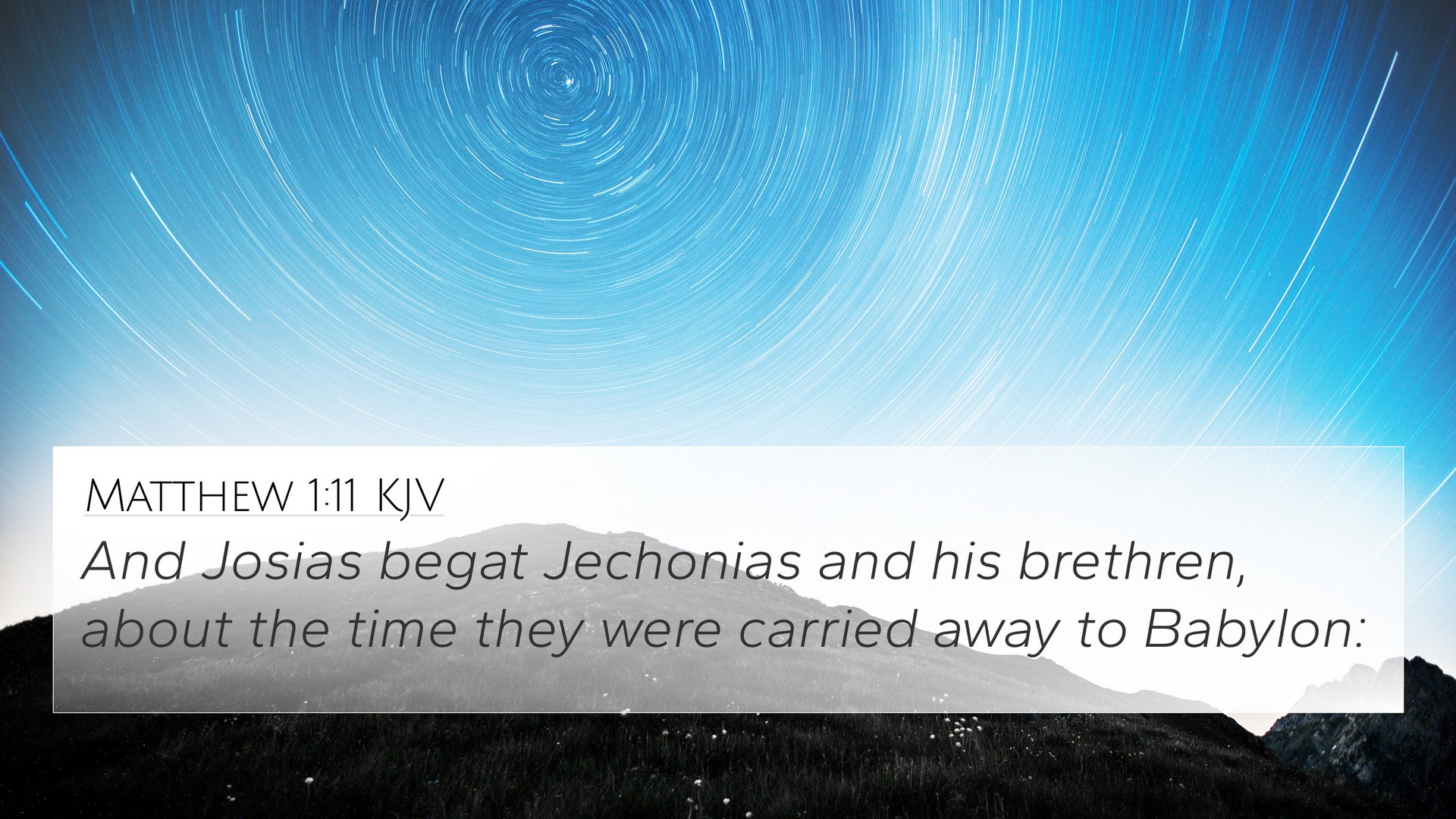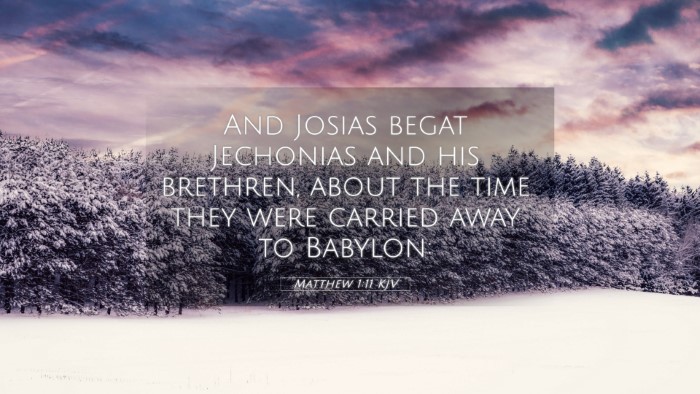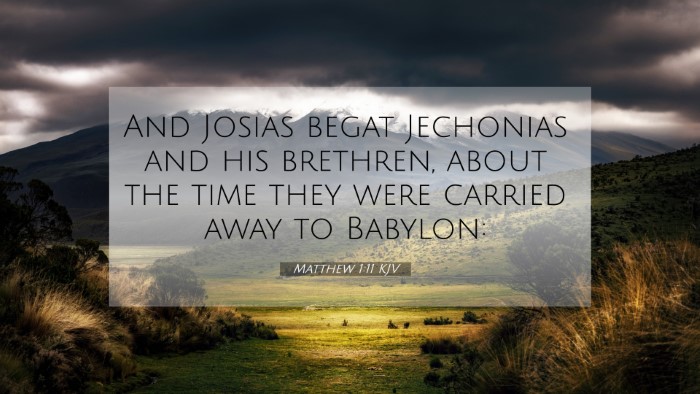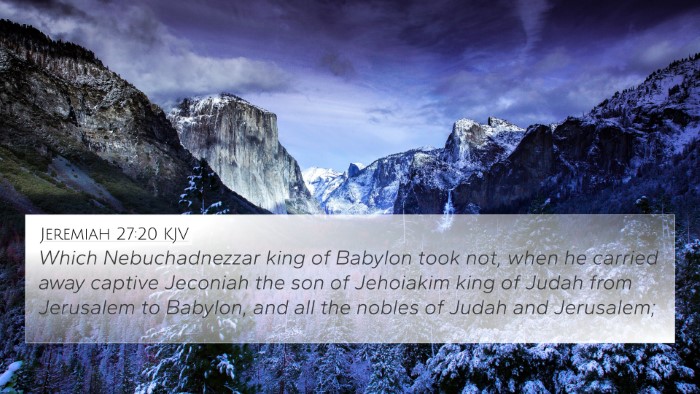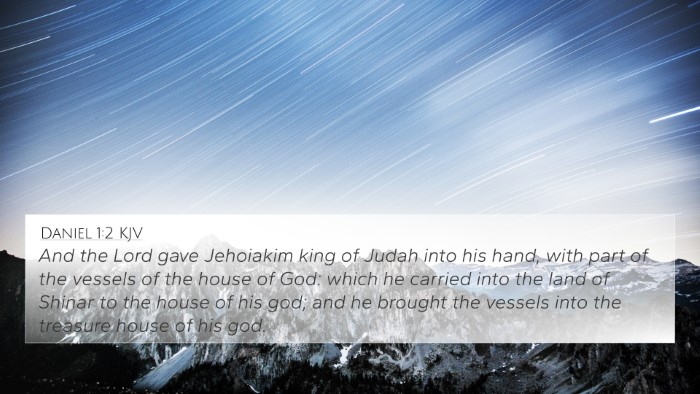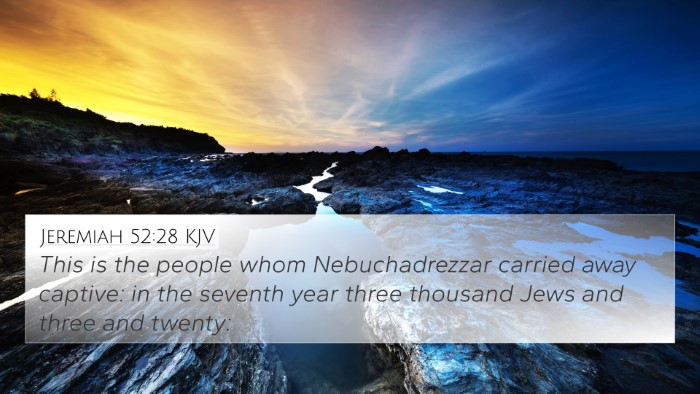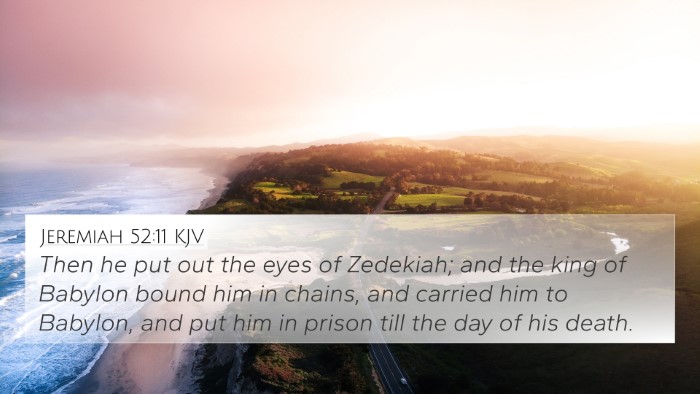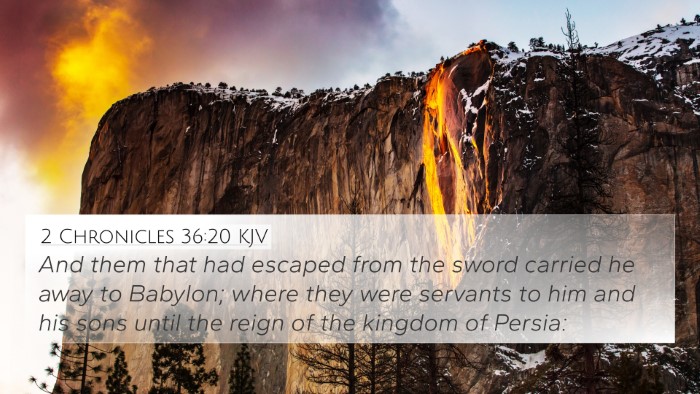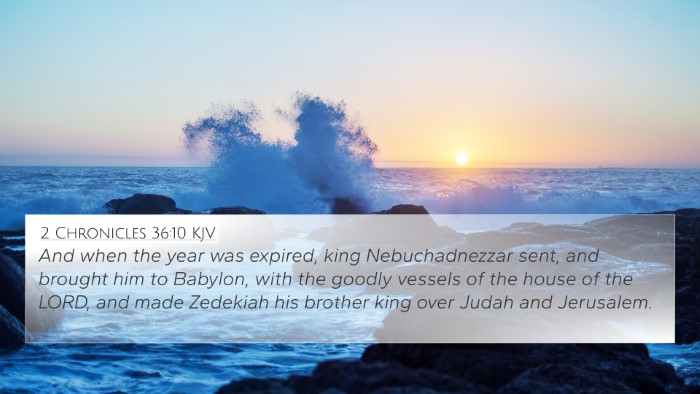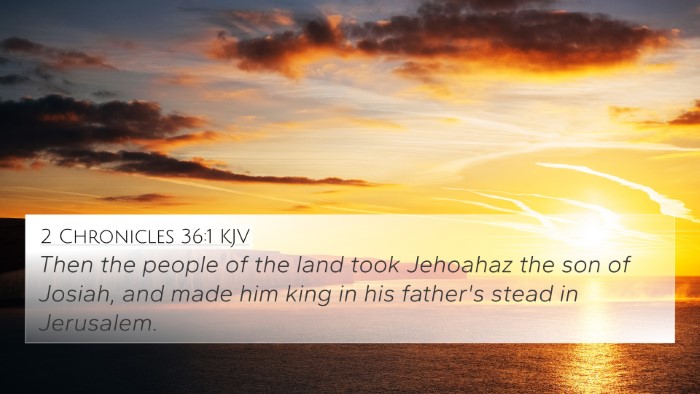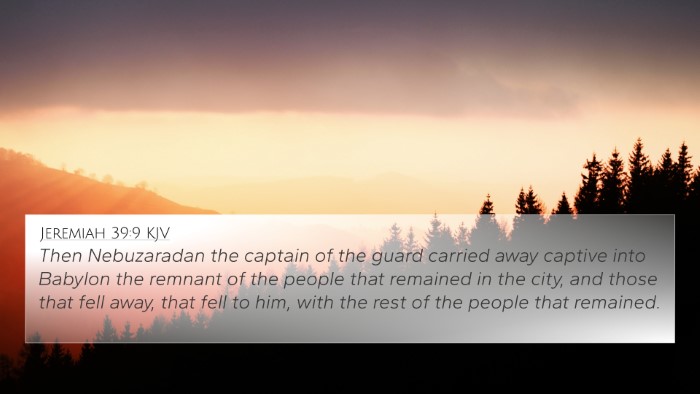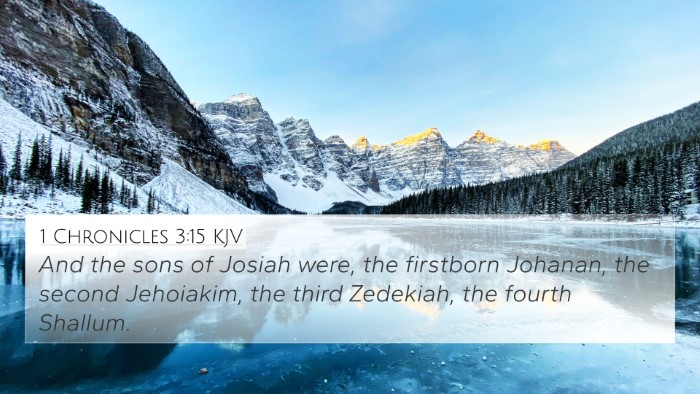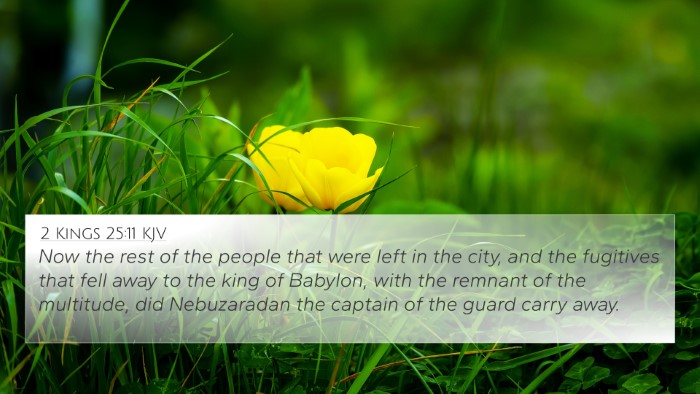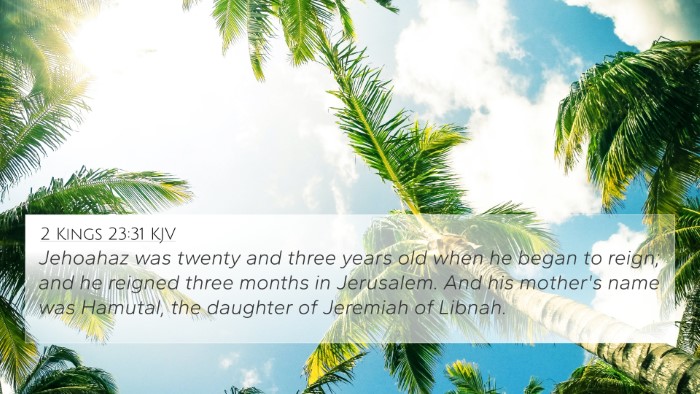Understanding Matthew 1:11
Matthew 1:11 states, "And Josiah begat Jechoniah and his brethren, about the time they were carried away to Babylon." This verse is a part of the genealogy of Jesus, tracing His lineage back to David and highlighting the significant events in Israel's history.
Summary of Biblical Context
This passage occurs within the broader genealogy that Matthew meticulously outlines, linking Jesus to the significant figures of the Jewish tradition. The mention of Jechoniah connects Jesus not only to David but also to the severe consequences of the Babylonian exile, a pivotal moment in Jewish history.
Insights from Public Domain Commentaries
-
Matthew Henry:
Matthew Henry emphasizes the importance of understanding the historical context surrounding Jechoniah. He highlights the significance of Jechoniah's reign and the subsequent exile, which serves as both a judgment for Israel and a setup for the eventual coming of Christ.
-
Albert Barnes:
Albert Barnes notes that this verse underscores the divine orchestration of history, wherein generations lead to the fulfillment of God's promises to Israel through Jesus. He elaborates on the providential hand of God in preserving a remnant even amidst judgment.
-
Adam Clarke:
Adam Clarke points out that Jechoniah's mention serves as a reminder of God's faithfulness despite Israel's failures. Clarke discusses the theological implications of the exile and its relationship with God’s overarching plan for redemption through Christ.
Key Themes and Connections
The themes emerging from Matthew 1:11 include:
- Judgment and Mercy: The exile reflects God's judgment, yet His promise remains intact, emphasizing both justice and mercy in God's dealings with humanity.
- Divine Plan: Every name mentioned in the genealogy serves a purpose, highlighting that God’s plan unfolds through history, ultimately leading to Christ.
- Historical Significance: The mention of Jechoniah serves as a reminder of the turbulent times in Israel's history and the continued hope in God's promises.
Cross References to Explore
Understanding Matthew 1:11 can be enriched by exploring related scriptures:
- 2 Kings 24:14-16: This passage describes the exile of Jechoniah and the capture of Jerusalem, illustrating the historical moment indicated in Matthew 1:11.
- Jeremiah 22:30: This prophetic word concerning Jechoniah emphasizes the consequences of his reign, linking to the larger narrative of exile and restoration.
- Lamentations 1:3: Lamentations reflects on the suffering of Jerusalem post-exile, connecting to the theme of loss and hope found in Matthew's genealogy.
- Ezekiel 17:22-24: This prophecy speaks of restoration and a new covenant, reflecting hope amid judgment, resonating with the narrative of Jesus' coming.
- Luke 3:27: This verse presents an alternative genealogy of Jesus that also includes Jechoniah, affirming the significance of this figure in biblical history.
- Romans 1:3: This verse emphasizes Jesus as a descendant of David, establishing His rightful heritage as suggested in Matthew 1:11.
- Isaiah 11:1: This messianic prophecy points to the lineage of Jesse and David, connecting the hope for a Messiah with the genealogy outlined in Matthew 1.
Cross-Referencing for Deeper Understanding
Using tools for Bible cross-referencing can deepen your study of this verse. Here are some resources and methods:
- Bible Concordance: Helps to locate related verses and themes quickly.
- Cross-Reference Bible Study: Utilize systematic approaches to study parallels between scriptures.
- Bible Reference Resources: Books and online tools that help explore intercultural dialogues within the Bible.
Concluding Thoughts
Matthew 1:11 invites believers to reflect on God's faithfulness through history despite human failings. This single verse links generations and fulfills promises established long ago, showing that even through exile and struggle, God's redemptive plan persists across the ages.
